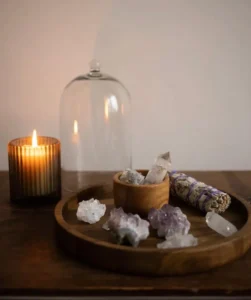With the increased awareness and plethora of knowledge out there, A lot of people are getting into self healing. While self-healing can be really helpful in clearing and improving one’s self, there are a few areas where it falls short – or rather doesn’t touch at all! Lets understand self healing and shortcomings. When one is blind to a side of the self – what you don’t know, you can’t heal! This is one area where a trained healer can extract and tell you; but, after that comes the acceptance!
Let’s take an example – say a person is always angry. It doesn’t matter who is there in front of him/ her, the person is always angry and reacting. Now, with self help books and self healing, he/ she can reduce the intensity of the anger or even accept the angry self. However, the person maybe unaware that the anger is actually a symptom of something deeper – it can be anger at self/ parents or some emotion from early years!
This is where a good healer can bring the root cause to the notice and work with the person to help make peace with it!. But this is also where the denial steps in. Because acknowledging it shakes the very foundation of your being!
Our Experience
On our personal journey of healing, we started with self healing. But then we became aware of self healing and shortcomings therein. Subsequently, we learnt a large number of healing modalities and techniques to work on various facets of us humans. Using Akashic Records, intuition, clair-senses, numerology and plain empathy, we have found that denial is the most potent and difficult obstacle in the healing journey. The thing about you that can be the clearest for others can also be the most obscure for you.
Don’t get me wrong, I am all about self-healing however, despite progress in self-healing, there comes a juncture where a feeling emerges—something integral seems absent from the process. The shift is from merely mitigating pain and clearing baggage to recognizing a void in the entire procedure. There is also a feeling that it is just something which is really basic but out of reach. The blind spot often remains, detectable only by an experienced healer and empathetic observer.
While vulnerability may intensify when sharing our healing journey with another, the rewards often surpass the challenges faced when struggling alone. The presence of another allows us to fully immerse ourselves in the healing process without the need to oversee it concurrently. Although there is a place for applying self-healing techniques privately, group dynamics, whether in a larger setting or one-on-one, do unravel crucial lessons about us, our boundaries, our belongingness, and interpersonal relations.
